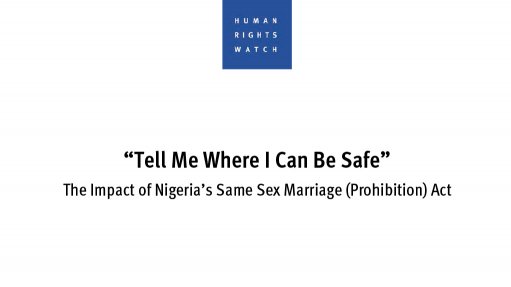
n January 7, 2014, Nigeria’s former president, Goodluck Jonathan, signed the Same-Sex Marriage (Prohibition) Bill (SSMPA) into law. The notional purpose of the SSMPA is to prohibit marriage between persons of the same sex. In reality, its scope is much wider. The law forbids any cohabitation between same-sex sexual partners and bans any “public show of same sex amorous relationship.”
The SSMPA imposes a 10-year prison sentence on anyone who “registers, operates or participates in gay clubs, societies and organisation or “supports” the activities of such organisations. Punishments are severe, ranging from 10 to 14 years in prison. Such provisions build on existing legislation in Nigeria, but go much further: while the colonial-era criminal and penal codes outlawed sexual acts between members of the same sex, the SSMPA effectively criminalises lesbian, gay, bisexual, and transgender (LGBT) persons based on sexual orientation and gender identity.
This report documents the human rights impact of the SSMPA on LGBT individuals and its effects on the activities of non-governmental organisations that provide services to LGBT people. This followed consultations with Nigeria-based LGBT activists and groups, and mainstream human rights organisations.
Report by the Human Rights Watch